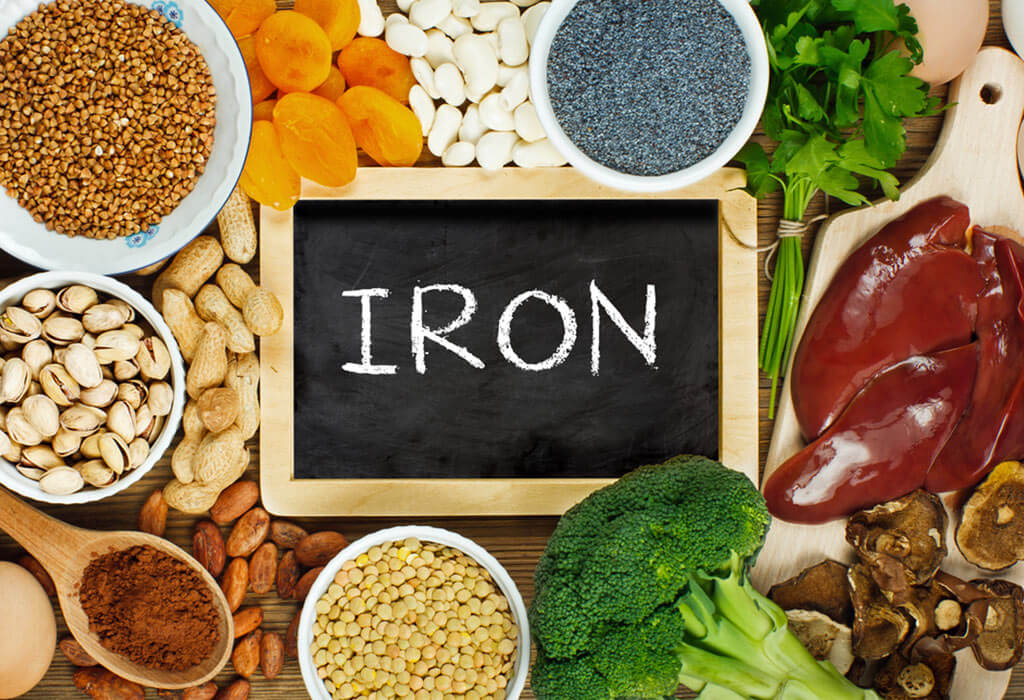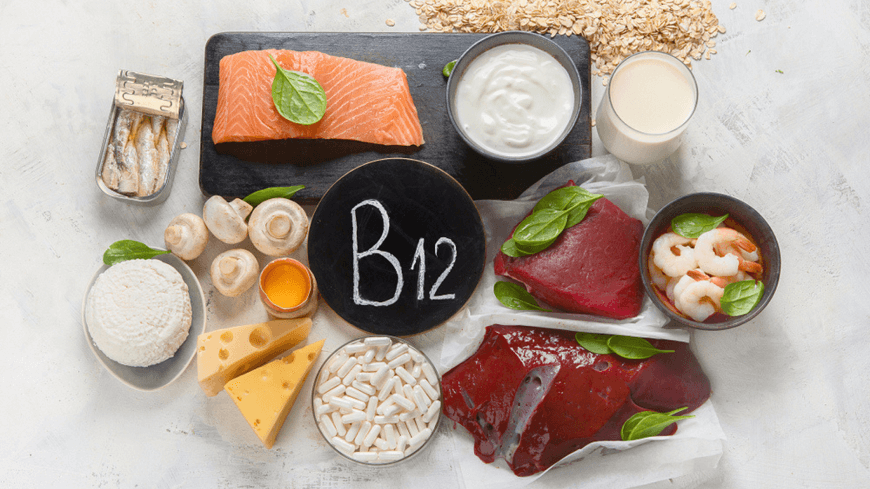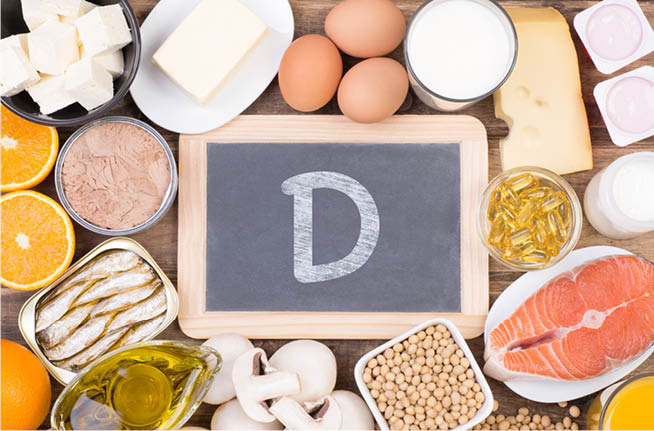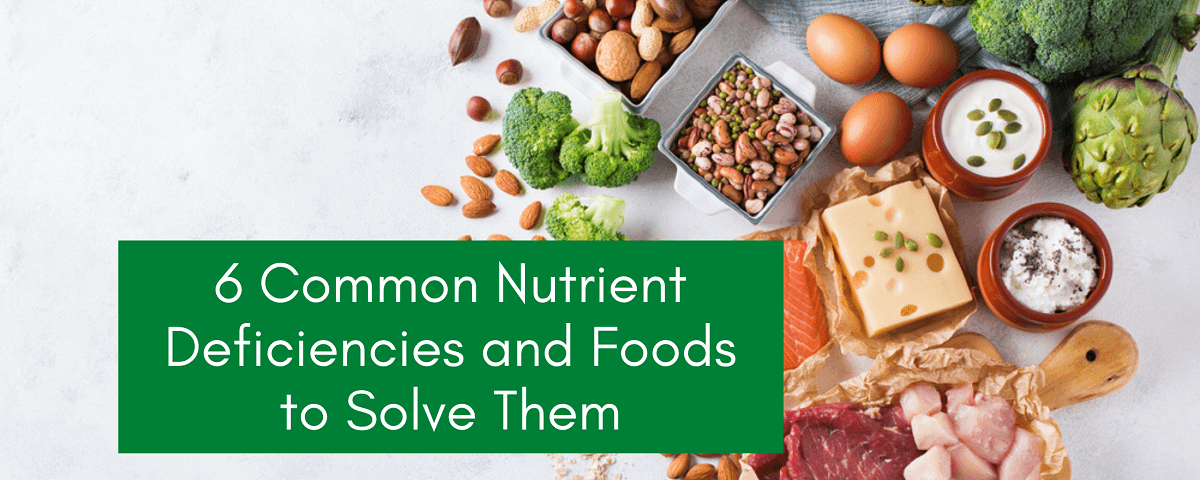6 Most Common Nutrient Deficiencies and Foods To Solve Them

10 Safe Tips for a Healthy Pregnancy
June 12, 2021
5 Myths About PCOS/PCOD
June 28, 2021Nutrients are an essential part of our diet. They help keep our bodily functions normal. They provide energy and regulate the chemical processes in our body. Nutrients also act as the building blocks of our body and are responsible for the repair and growth of our body.
While it is possible to get the required nutrients from our regular diet, most often people tend to develop nutrient deficiencies due to bad dietary habits and negligence.
6 Nutrient Deficiencies That Are Quite Common:
#1 – Iron Deficiency:

Iron is an important element that helps in blood production. Around 70 per cent of iron found in our body is in the red blood cells called haemoglobin. This helps in carrying oxygen to various parts of the body.
Iron deficiency leads to low levels of haemoglobin in the body. This is one of the most common deficiencies all across the world. Low haemoglobin levels in the body can cause weakness, shortness of breath, fatigue, dizziness etc. These symptoms are mild at first which is why most people don’t realise their haemoglobin count is low until they undergo a blood test. It is possible to experience the symptoms for years before realising it. This condition can be improved by adding iron-rich foods to the diet.
There are two types of iron called heme iron and non-heme iron. Heme iron is very well absorbed and is usually found in high amounts in red meat. Non-heme iron is not as easily absorbed as heme iron and is found in both plant and animal foods.
Preschool children are more likely to suffer from this deficiency which is why it is important to provide them with an iron-rich diet. Also, due to monthly blood loss, menstruating women also tend to suffer from this deficiency.
The best sources of heme iron include meats, poultry and seafood. Non-heme iron can be found in plant foods such as whole grains, nuts, seeds, legumes and leafy greens.
Also Read: 5 Healthy Lifestyle Tips To Follow During Covid-19 Pandemic
#2 – Iodine Deficiency:
Iodine is essential for the functioning of the thyroid gland in our body and for the production of thyroid hormones. Thyroid hormones are responsible for bone health, brain development and growth.
Iodine deficiency occurs quite commonly and affects almost one-third of the world population. The consequence of iodine deficiency is the enlargement of the thyroid gland which is also called goitre. It may also lead to shortness of breath, weight gain and a high heart rate.
Sources of iodine include foods such as fish like cod and tuna, seaweed, shrimp and other seafood. Dairy products are also rich in iodine especially milk, yoghurt and cheese. Iodised salt which is readily available in most countries is also a good source of iodine for many.
#3 – Vitamin B12 Deficiency:

Vitamin B12 is a water-soluble vitamin that is essential for making DNA, the genetic material in all cells. It also keeps the blood and nerve cells healthy.
Though every cell in our body requires Vitamin B12, our body doesn’t produce it naturally. We have to get it from outside food sources.
Vitamin B12 is found in sufficient amounts in animal-based foods. Fish, meat, poultry and eggs are a good source of Vitamin B12. Milk and dairy products also contain Vitamin B12.
Also Read: 6 Effective Tips For Weight Loss With Thyroid
#4 – Vitamin A Deficiency:
Vitamin A helps in forming and maintaining healthy skin, teeth, bones, skeletal and soft tissues and mucus membranes.
Vitamin A deficiency is most common in developing countries such as India. Its deficiency can lead to temporary or permanent blindness and is a major reason for blindness all over the world.
Foods such as animal liver, fish liver oil, sweet potatoes, carrots and dark green, leafy vegetables are rich in Vitamin A.
#5 – Vitamin D Deficiency:

Vitamin D is a fat-soluble vitamin that helps in bone growth and assists the body in the absorption of calcium.
Vitamin D deficiency can result in weaker bones in children, misshapen bones in adults, also known as a condition called osteomalacia. Our body naturally produces Vitamin D upon exposure to sunlight. For this reason, this deficiency is common among people living far from the equator.
Foods such as cod liver oil, fatty fish and egg yolks are rich in Vitamin D. Also thirty minutes of exposure to sunlight twice a week can help your body produce the required amount of Vitamin D.
Also Read: Healthy Diet Plan for Night Shift Workers (Employees)
#6 – Calcium Deficiency:
Calcium is essential for every cell of the body, especially during a period of rapid growth. The body needs calcium to carry messages from the brain to every other body part through the nerves.
Most of the calcium in our body is stored in the bones and the teeth which supports their hardness and structure. When the calcium intake of our body is low, the bones release this calcium to carry out the essential bodily functions. Due to this, calcium deficiency usually leads to osteoporosis which causes soft and fragile bones.
Milk, yoghurt and cheese are major sources of calcium. It is also found in vegetables such as kale and broccoli. Fish and salmon, grains such as bread, pasta and unfortified cereals, soy and tofu are also good sources of calcium.
Nutrient deficiencies like these are common and ignoring them can lead to critical conditions. Always ensure your diet includes the required amount of nutrients for normal bodily functions. For a wholesome nutrient-rich diet it is advisable to take the recommendation of a professional dietician who can understand your dietary habits and can curate a specific plan for you.
Dietician Priyatama Srivastava is a certified dietician who has been treating nutrient deficiencies through her extensive knowledge in diets. She has also treated people with severe medical conditions through the magic of her diet. She is the best dietician in Gurgaon and NCR region. For any queries, get in touch with her today.


